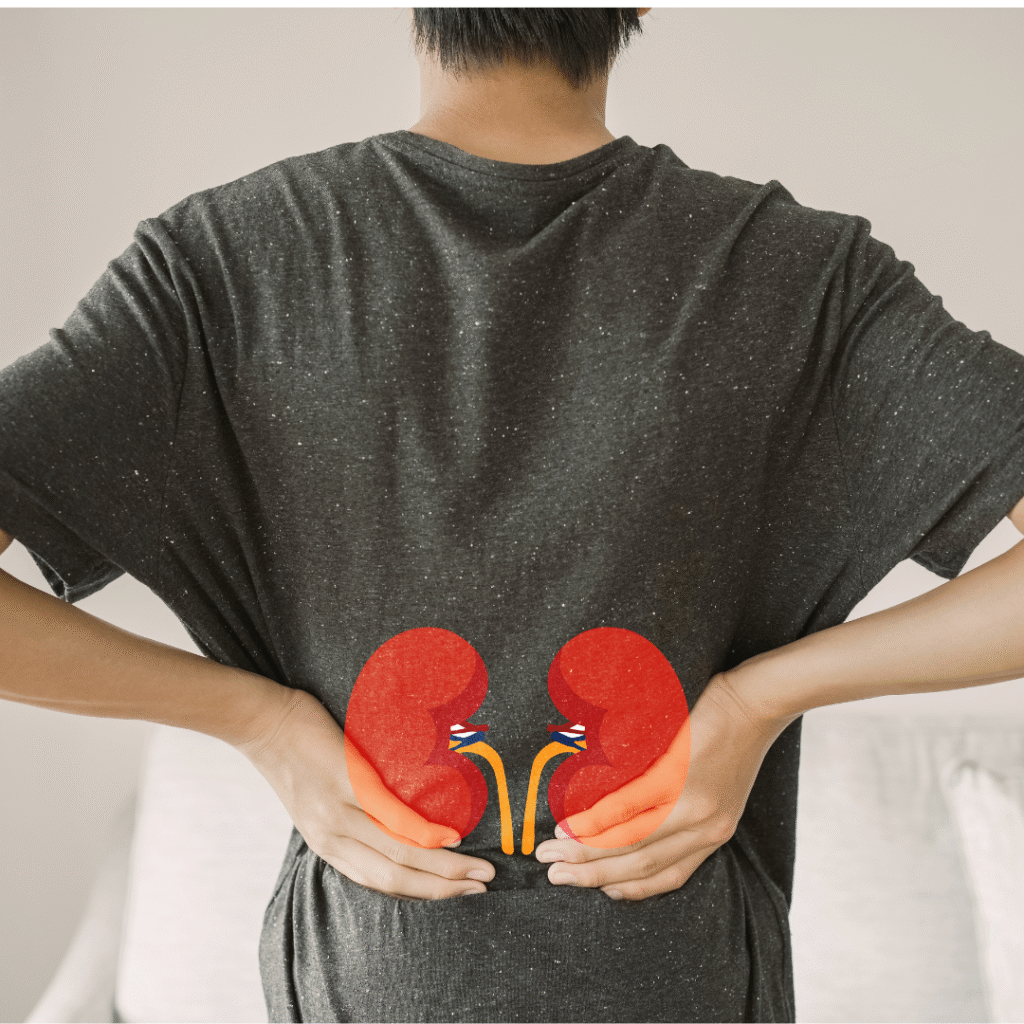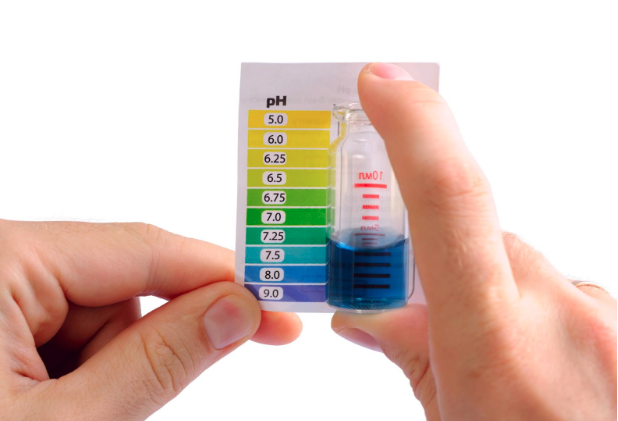You might have heard that consuming alkaline water can be beneficial for your kidneys in the long run. However, before you rush to stock up on alkaline water, it is key to discern if drinking it is truly good for your physical health. In this blog article, Dr Fiona Wu, the Medical Director and Senior Consultant Urologist of Aare Urocare, provides an evidence-based lowdown on the topic.
What is Alkaline Water?
Alkaline water typically has a pH level between 8 and 9, sometimes up to 10.
Unlike most drinking water, which has a neutral potential hydrogen (pH) value, alkaline water has been treated to achieve a pH range of 8 – 10. Increasingly, more people are gravitating towards alkaline water due to its perceived health benefits.
This is unsurprising given the bold claims surrounding alkaline water, such as its potential to provide better hydration or even prevent cancer. Some also claim that it improves kidney function, which relies on water as a medium to remove excess acids and waste from the body.
Nevertheless, understanding the kidneys’ function and pH balance would help to paint a clearer picture of the true benefits of alkaline water.
Understanding Kidney Function and pH Balance
Role of Kidneys in Maintaining pH Balance
For the human body to function optimally, maintaining a balanced pH for most metabolic activities is crucial. One key regulator of the body’s pH levels is the kidney, which does so in two primary ways: (1) reabsorbing bicarbonate (an alkali) from the urine back into the blood, and (2) secreting hydrogen ions (an acid) into the urine.
Impact of External pH Sources on Kidney Function
Different foods and beverages we consume can influence our body’s pH levels. If we consume too much acid, our body will compensate by making our kidneys work extra to excrete the excess acids. Failure to do so could result in a buildup of acids in the blood. During this process, the kidneys benefit from having sufficient water in the system as it acts as a medium for the excretion of excess acids.
While this marks the importance of water’s role in kidney function, we must be mindful that drinking alkaline water introduces alkalinity. Just as there can be too much acidity in the body, there can also be too much alkalinity. If this happens, the kidneys will try to flush the excess alkalinity into the urine. However, a large excess of either acidity or alkalinity in the body can put the kidneys into overdrive and potentially lead to renal impairment (kidneys not functioning properly).
 Potential Benefits of Alkaline Water for Kidney Health
Potential Benefits of Alkaline Water for Kidney Health
Now that you have a better understanding of the kidney’s function, let us dissect the potential benefits often claimed for alkaline water.
Studies on Alkali Therapy in Chronic Kidney Disease (CKD)
An isolated study has suggested that alkali therapy (including drinking alkaline water) may improve kidney function in patients with CKD. Particularly, the study’s findings show that the patients’ ability to filter blood improved, and they are less likely to require dialysis.
While isolated studies have suggested potential benefits of alkali therapy in chronic kidney disease, these findings haven’t been consistently replicated or widely adopted in medical practice.
Verdict: Despite claims about alkaline water alleviating CKD, there is insufficient scientific evidence supporting this claim.
Alkaline Water and Acid Neutralisation
In our urology specialist clinic in Singapore, we also often encounter the following common misconception about alkaline water. The myth suggests that drinking alkaline water can neutralise acidity in the bloodstream, thereby reducing the workload on one’s kidneys and preventing kidney disease.
This claim may stem from a 2012 study in which findings suggest water with a pH of 8.8, commonly found in commercial alkaline water, can neutralise stomach acid (pepsin). Nonetheless, this effect is limited to the stomach and does not impact blood acidity. The kidneys regulate blood pH through bicarbonate reabsorption and hydrogen ion secretion, not through the pH of consumed water.
Verdict: While alkaline water may be useful in relieving acid reflux symptoms, it is irrelevant to the kidneys’ function, as alkaline water cannot directly neutralise acidity in the blood.
Potential Risks of Alkaline Water for Kidney Health
Overconsumption and Electrolyte Imbalance
Drinking a bottle of alkaline water a day may not have a significant impact on your body. However, if you drink more than a few litres a day, certain side effects are possible, such as an imbalance in blood electrolyte levels.
One common example of an electrolyte imbalance is hypokalaemia (low potassium levels). Those with this condition may experience excessive urine production caused by the kidneys’ impaired ability to concentrate urine due to low potassium levels.
Overconsumption and Excessive Alkalinisation of Urine
Over-alkalinisation of urine can promote the formation of other types of stones, such as calcium phosphate stones, and is therefore not recommended. While we sometimes advise certain patients to alkalinise their urine to help dissolve or prevent uric acid stones, excessive alkalinisation may inadvertently increase the risk of developing stones composed of other minerals.
Therefore, urologists should use urine alkalinisation with caution, tailoring recommendations to individual patient profiles and closely monitoring urine pH levels. This approach maximises the benefits for uric acid stone prevention while minimising the risk of promoting other types of stones.
Overall Stance
Based on the limited studies we have today on alkaline water consumption, most doctors agree there is a lack of conclusive evidence to support bottled or home-treated alkaline water over safe tap water or regular bottled water. There has yet to be strong scientific evidence to prove the efficacy of alkaline water in enhancing kidney health.
Alternative Approaches to Supporting Kidney Health
If you are curious about how to take better care of your kidney health, here are some easy tips to adopt:
Hydration with Regular Water
Hydration with regular water is typically more than enough to support healthy kidney function, so there is no need to drink alkaline water on a regular basis. It is important to stay adequately hydrated as that usually ensures toxins and waste can be properly removed by the kidneys, while avoiding the small risk of inducing excessive alkalinity in the body.
Balanced Meals
Adopting a well-balanced diet rich in vitamins and minerals is an effective way to prevent, halt or slow the progression of kidney disease. You can easily source these vital nutrients from most fruits and vegetables.
However, the tricky part is achieving the right balance as kidney functioning is sensitive to mineral imbalances.
The aforementioned tips are merely general guidelines. For tailored advice, it is advisable to consult a urologist in Singapore.
Conclusion
Weighing the Pros and Cons
While some proponents believe in alkaline water’s potential benefits to improve kidney function, these claims are not evidence-based as there is a lack of robust studies to back them up. Moreover, the potential risk from its overconsumption is damage to kidney function.
If you opt for alkaline water, maintaining a moderate intake is encouraged. When in doubt, consult a urologist in Singapore for personalised medical advice, especially if you have an existing kidney condition. PRIME
References
- Osmosis. (n.d.). The role of the kidney in acid-base balance. Retrieved from https://www.osmosis.org/learn/The_role_of_the_kidney_in_acid-base_balance
- National Kidney Foundation. (n.d.). Metabolic acidosis. Retrieved from https://www.kidney.org/kidney-topics/metabolic-acidosis
- Merck Manuals. (n.d.). Alkalosis. In Merck Manual Consumer Version. Retrieved from https://www.merckmanuals.com/home/hormonal-and-metabolic-disorders/acid-base-balance/alkalosis
- MSD Manuals. (n.d.). Metabolic alkalosis. In MSD Manual Professional Version. Retrieved from https://www.msdmanuals.com/professional/endocrine-and-metabolic-disorders/acid-base-regulation-and-disorders/metabolic-alkalosis
- Testing.com. (2022, January 28). Acidosis and alkalosis. https://www.testing.com/articles/acidosis-and-alkalosis/















Leave A Comment